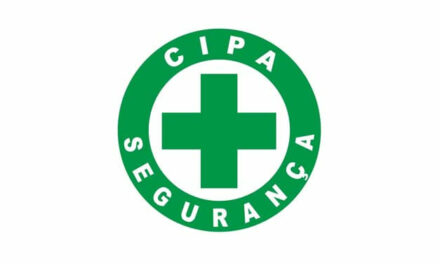Introduction
It is a well-known fact that corruption can only be prosecuted after the crime has already been committed, however, prevention is always better than cure. It is for this reason that although many countries have laws which deal with corruption they are now International Conventions insisting on developing corruption preventive measures directed at both public and private sector (UNOD C: 2005). In Malawi, there have been a lot of reported cases where companies have been reported involved in corrupt activities and many individuals have been prosecuted by the Anti-Corruption Bureau (ACB). However, in Malawi, there has never been a case where a company was taken to task for its corrupt activities neither though civil or criminal prosecution. The recent case of Registered Trustees of Youth and Society vs. Pioneer Investment Civil Cause Number 215 of 2018 which is still in the courts and is being prosecuted by a Non-Governmental Organization (NGO) is facing a lot of technical problems because an NGO lack locus stand (sufficient interest) to prosecute a private company under the concept of public interest litigation, at the same time the ACB mandate is only criminal prosecution of individuals. It is from this background that this opinion will try to find a way in which a new law for Malawi can be passed that will make companies be held both civil and criminally liable for any corrupt activities either involving the company, employees or their associates.
Legal Framework
The application of this law should not be that of strict liability, meaning that a company need not be liable sorely for being found engaging in corruption (UK Bribery Act of 2011). Rather, they should be some indicators if proved or missing then the company will be held liable. This law must be formulated having in mind the importance of having successful companies in the country, as this is one of the major contributors to a successful economy.
To come up with an effective law it is important to specify the kind of malpractice which this new law would impose corporate liability. In our research, we found several indicators which we believe will suit the Malawian legal set up. It must be made clear that these offences have been adopted from the UK Bribery Act of 2011. These are:
- Offering, promising, giving or facilitating a bribe;
- Accepting or receiving a bribe in return for goods, services or a contract to supply goods or services;
- Bribing or attempting to bribe a public official;
- Failure on the part of a company to prevent bribery”(UK Bribery Act of 2011).
Understanding doing business in Malawi
It should be noted that business adaptive biases are sometimes very important in a competitive business environment, hence the law should accept the existence of the pressure which exists in such an environment. In this regard, all businesses are inclined to take the necessary risks and be creative to be successful and survive (Gino & Ariely, 2016). It is common for those who are not involved in a particular trade to consider as an unethical certain type of conduct/behavior among the actors of that particular trade whilst it is considered as normal within that particular section of business and is regarded as business as usual. The law must act as a guideline in a way that whilst business actors are encouraged to be creative they also have to have at their back of their minds that any unethical behavior which will result to corruption will be faced by sanctions if detected.
The Role of Sanctions and Incentives in the prevention of corruption
Sanctions
It has been argued that companies will take all necessary steps to reduce the risk associated with corruption if the law imposes a mixture of detection and sanctions (Langevoort, 2017). It is from this reasoning that it is important that all companies irrespective of how small or big they must be held liable or that the Malawian government must impose both civil and criminal liability on all businesses involved in corrupt practices. Section 24 of the Penal code of Malawi impose criminal liability to senior management. However, it falls short of the actual imposition of the sanctions against the Company and there is a lot of limitations. It states;
“Where an offence is committed by any company or other body corporate, or by any society, association or body of persons, every person charged with or concerned or acting in, the control or management of the affairs or activity of such company, body corporate, society, association or body of persons shall be guilty of that offence and shall be liable to be punished accordingly, unless it is proved by such persons that, through no act or omission on his part, he was not aware that the offence was being or was intended or about to be committed, or that he took all reasonable steps to prevent its commission” (Section 24 of the Penal Code).
In our opinion liability must be imposed even if the company was not aware or had no intention to commit the crime (UK Bribery Act). What needs to be proved in this case is that the company had no mechanism of preventing such crimes (UK Bribery Act, 2011). This means the imposition of sanctions will be applied also in a situation where an employee or an agent acting on behalf of the company is found to be criminally liable for corrupt activities. However, in this situation, the company should only be liable if the corrupt practices in question were to the benefit of the company. The rationale behind imposing civil and criminal liability on the companies is that this will force/motivate them to come up with strict rules and regulations applicable to themselves as well all those they are doing business with, such as agents.
In addition to the above, it will be less costly on the part of the government as the company will mostly self-regulate themselves. The company will use its resources to come up with a mechanism to monitor and investigate any corrupt activities to minimize such conduct within its business environment for fear of sanctions.
The sanctions which must be imposed if any company is found liable must always be higher than the total sum of all the whole total amount which was at stake in the deal (Langevoort, 2017). We, therefore, suggest 10 to be multiplier used to come up with a penalty.
For example:
10 multiply by (Corruption Amount + Total Project Amount) = Penalty/sanction
The argument is that if the sanctions/ penalty is less than the amount which they will benefit from the corrupt activity the companies will not have enough motivation for them to invest in the compliance programs to minimize corruption and any other criminal activities(Langevoort, 2017).
In addition to the above, the new law must put a provision to allow the nullification of all corrupt contracts and those obtained by corruption. This will reduce corruption as it will be a high risk for corrupt actors since if the contract is nullified they stand to lose (Lambsdorff, 2002). Further, the money which is paid by these corrupt actors cannot be recovered by them as the courts cannot be used to enforce a corrupt transaction.
Incentives
If only sanctions are imposed without any other incentives there will also be a danger of having the law more draconic. Modern laws have to be drafted by mixing sanctions with incentives. We, therefore, suggest that several incentives must be adopted to encourage the culture of compliance in the business sector.
All business must have a compliance program which will put adequate procedures formulated to prevent corruption. These procedures or compliance program will be used as an absolute defence against the strict imposition of sanctions if the company is found liable (UK Bribery Act). However, it should be noted that cosmetic procedures will not be accepted as a defence.
To be clear as to what will be regarded as adequate procedures we will adopt the UK Bribery Act clarification of adequate procedures which is as follows:
Proportionate procedures
- Actions taken to prevent bribery should be proportionate to the risks a company faces Top-level commitment;
- The board and company management are best positioned to prevent bribery and must be committed to doing so Risk assessment;
- Companies must assess the risks associated with entering new markets and exposure via employees and third parties – Due diligence;
- Companies should know who they are doing business with and account for these risks;
- Communication;
- Policies and procedures should be communicated to employees and others who perform services for the company. Monitoring and review;
- Companies should assess risks and the ability of policies and procedures to mitigate them as they evolve over time.”(UK Bribery Act,2011).
Even though we are of the opinion that there should be corporate liability on companies, we are aware that many corporate wrongdoing which have affected the global business mostly happened due to selfish interest of the senior individual of the affected company and not actually by the company in general (Enron Case) (Segal, 2018). Nevertheless, it is now generally accepted principle in business that a business environment matters a lot. Where there are good leadership and trustworthy it yields good results.
A good compliance program must make sure that the business is sustainably doing the right things. The legitimate of the company activities with the support of its leadership (tonne at the top), makes the whole compliance program to be more legit than a mere cosmetic process which is just adopted in fear of known sanctions if detected. Therefore, for a compliance program to be used as a defence and for the company to enjoy all incentives which are applicable when a company is implementing a compliance program in Malawi, the compliance program must consist of the following structural framework:
- A commitment from senior leadership to the task, setting a right “tone at the top;
- Delegation of authority to officials with distinct compliance responsibilities and the resources to do their task;
- Firm-wide education and training about both the substance and process of compliance;
- Informational mechanisms to alert as to suspicious activity (e.g., whistleblowing procedures);
- Audit and surveillance tactics to detect compliance failures or risks;
- Internal investigation, response, discipline and remediation to learn and adjust when failures occur” (Langevoort, 2017) p939.
We are aware that it will be difficult for small businesses to produce a compliance program which big companies will produce. However, for small businesses they do not have to come up with a complex document. For small businesses, all they need to do is to have a written document which states that they have assessed the risks, issued guidelines to their employees on how to avoid bribery and put the appropriate measures in place which they review on an annual basis. (UK Bribery Act, 2011, Ministry of Justice Guidelines).
Further to the above, the Malawian corporate anti-corruption law should have addition incentives modelled similar to the United States FCPA Act and the US Department of Justice (DOJ) guidelines with minor alterations. This should be adopted as follows:
1. Presumption of Declination
In absence of any aggravating circumstances, a Company will receive a presumption that if they are implicated in a corrupt activity their case will be resolved through a declination (US DOJ Guidelines). In this case “aggravating circumstance” will apply in a situation where there is senior management involvement in the corruption or where there was serious effort to hide or destroy evidence by the company. Nevertheless, the presumption of declination will be achieved if the company;
- Voluntarily self-disclose;
- Fully cooperate;
- If they timely and appropriately remediate.
Note: In situations with aggravating circumstances, a company which self-disclose, cooperate, and remediate will not receive a presumption of declination in Malawi (US DOJ Guidelines). However, just like in the USA the company needs to be given a reduction in terms of the sanctions imposed for their effort. We recommend a 40% reduction off of the fine which was to be imposed. On top of this, the company should be closely monitored for three years to make sure that it is implementing an effective compliance program.
2. Disgorgement, forfeiture, and/or restitution
A company which pays back all profits from the corrupt activity will also be given leniency (US DOJ Guidelines). In this case, they must pay a small fine depending on the circumstances of the case.
3. Cooperation and remediation without self-disclosure
Companies that choose not to voluntarily self-disclose but that otherwise cooperate fully with the authorities during the investigations and also do timely and appropriate remediation should also receive a reduction in the penalty/sanctions to be imposed (US DOJ Guidelines).Our recommendation will be a 20% reduction off of the total fine to be imposed.
Analysis
Implementing a law that will reduce and prevent companies from corrupt activities is not simple. Most business environment in Malawi is breeding grounds for corrupt behavior.
As already said we know the importance of having a competitive business environment that is why this opinion has set the right incentives for anti-corruption compliance without affecting the whole business environment. Sanctions are very important and have worked in so many ways in the developed world with the passing of the FCPA Act by the United States of America followed up by the UK Bribery Act of 2011. The above two laws have also proved that the mix of sanction and incentives will motivate companies to develop compliance programs and corporate with authorities when they are needed to so.
We, therefore, recommend that the new anti-corruption corporate liability law should adopt the tried, tested laws and systems with minor alteration as discussed above to suit the Malawian legal system.
References
An Anti-Corruption Ethics and Compliance Programme for Business, United Nations Office on Drugs and Crime: A Practical Guide, 2013 available on www.unodc.org accessed on the 9th of May 2019. Basal Institute on Governance, Anti-Corruption Collective Action: Success factors, sustainability and strategies Insights and recommendations from two workshops, International Center for Collective Action, Working Paper Series 27, 2018.
Dowding Keith, Collective Action Problem, available on www.britannica.com accessed on the 7th of May 2019.
Kyle Wombolt and Fletcher R, Global trends and Global Outlook, available on www.herbertsmithfreehills.com accessed on the 20th March 2019.
Maritime Anti-Corruption Network (MACN Impact Report, 2018).
Partnering against Corruption Initiative, World Economic Forum, available on www.weforum.org accessed on the 21st March 2019.
World Bank Institute, “Fighting Corruption through Collective Action—A guide for business”, Version 1.0, 2008.
Marquette Heather and Caryn Pfeiffer, Corruption and Collective Action, available on www.dlprog.org accessed on the 9th of May 2019.
United Nations Global Compact, Joining forces against corruption: Anti-Corruption Collective Action, available on www.unglobalcompact.org accessed on the 6th of May 2019.

Francis Nyarai Ndende




